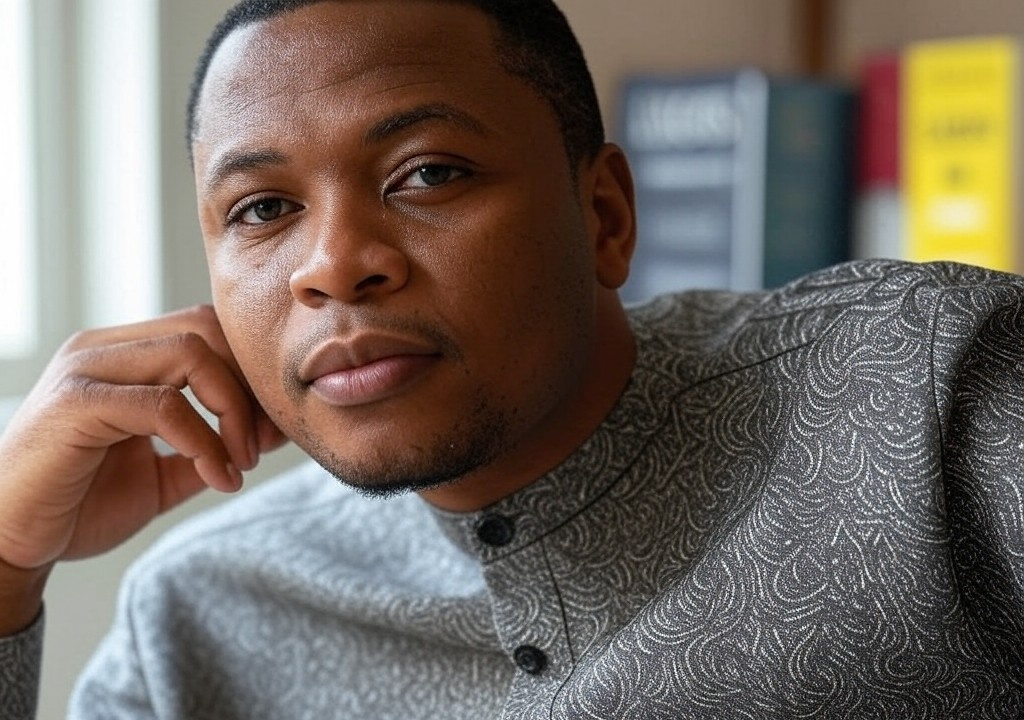Living Between Worlds
At eight years old, I learned there were multiple ways to say “mom.” In Lagos, it was “mama,” a word that stretched like the warm embrace of a hug. In Brooklyn, where we’d just moved, it became “mom,” a quicker, clipped version that felt like it belonged in a sitcom. It was a small thing, a single word, but it embodied what my life would become—a joyful, sometimes frustrating dance between two worlds.
Fast forward to adulthood, and that same dance extends into relationships. If you’ve ever found yourself at the intersection of cultures, values, or identities, you know the challenge—and beauty—of trying to make it all work. Whether it’s debating whether to text “good morning” or wait three days (who made that rule, anyway?) or explaining why your idea of Valentine’s Day involves Jollof rice and Afrobeats, navigating these dualities can feel like living with one foot in two entirely different countries.
Let me break it down for you.
The “Two Worlds” Tango
Being Nigerian-born and Brooklyn-raised, I’ve always carried two universes in my pocket: one steeped in respect for tradition, and another rooted in the buzzing, fast-paced independence of New York City. Enter dating, and suddenly those two worlds start fighting over who gets the spotlight.
For example, take the dinner date. In Nigerian culture, food is a communal experience, which means eating together isn’t just optional—it’s essential. And oh, you better compliment the meal! Growing up, I watched my mom beam when my father praised her cooking. So imagine my utter shock when I dated someone who insisted on separate plates because sharing felt weird. Weird? Ma’am, love is swapping fish filet for French fries and pretending you’re okay with the trade!
Or picture this: introducing a date to your family. Nigerian families? It’s not just an introduction. It’s an event. Uncles you haven’t seen since the 2007 family reunion will pop out of nowhere to shake your date’s hand. In the U.S., though, introductions are way more casual—think “Hey, Mom, this is Lauren. Anyway, what’s for dinner?” And me? Stuck smack in the middle, weighing whether to warn my date about Aunt Alade’s inquisition or let her discover it the hard way.
The Accents of Attraction
Dating with dual identities means navigating deeper questions, too. Like: What parts of myself do I share?
If you’re anything like me, you might’ve grown up switching accents or using slang like flipping light switches. At school, I used “yo” and “deadass.” At home, I said “Abi?” or “I dey come.” But when love is involved, those linguistic gymnastics take on new importance. Do you show your full self on date one? Or do you wait until you’re more comfortable?
I once dated someone who was fascinated by my Nigerian accent but couldn’t care less about my Afrobeat playlists. On paper, we clicked, but in reality, it felt like fitting my whole self into a single checkbox: Exotic Voice. And let’s be real—there's so much more to entire cultures than how the English words sound coming out.
Conversations Over Culture
So how do we manage these dualities without losing ourselves? Let’s start here: acknowledge them. Relationships thrive in the sunlight of self-awareness. Here are some reminders I’ve picked up along the way:
- Be upfront about what matters to you. Whether it’s preferring your partner learns how to pronounce your name correctly (I love my name, stop making it sound French!) or sharing cultural traditions that mean everything to you, these specifics build intimacy.
- Embrace open curiosity. If your partner doesn’t know something about your culture, it’s not a red flag—it’s an opportunity. Share your favorite dish or movie. Bonus points if it leads to food (everything leads to food).
- Let humor soften the edges. When the differences feel glaring, laughter helps. Like the time I said “I dey chop” to a girlfriend during dinner, and she replied, “Who’s chop?” Once I explained, we couldn’t stop giggling.
From Flirt to Familiar
Here’s the thing: dualities in dating aren’t something to “overcome.” They’re bridges waiting to be built. Whether you’re biracial, bicultural, bilingual, or just balancing career ambitions with a love for Sunday morning laziness, your layers make you interesting. Don’t water them down just to “fit.”
You’re not a “problem” to solve. You’re a story to explore.
And here’s the best part: When you meet someone who gets it—or even better, respects it—the dance between worlds suddenly feels like a duet. Eyes meeting across a crowded room or hearts connecting over a shared joke about plantains (fried vs. boiled wars are real!)—those are the moments that remind us love doesn’t belong to one world. It thrives in the spaces between.
So the next time you find yourself wondering if you’re “too much” for someone, remember this: You’re just enough. And the right person? They’ll make room for your entire world—accent switches and all.




















